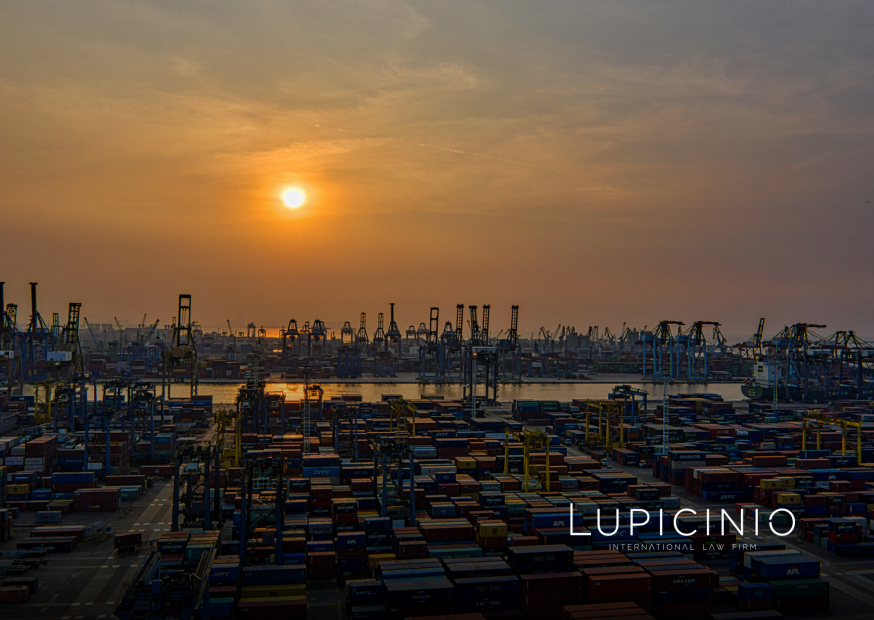The buying and selling of shares by a foreign investor in a Cuban Joint Venture
José María Viñals Camallonga
Partner and Head of International Operations
Renato A. Landeira
Senior Associate Lawyer
LUPICINIO INTERNATIONAL LAW FIRM
Madrid, 17th April 2017.- The Cuban constitutional reform on the 12th July 1992 in many ways marks the pinnacle of the Cuban economy’s reorientation towards foreign investment. Among others, it recognized joint venture companies constituted under the law as a new form of property. Likewise, this reform was an important milestone in providing for, albeit exceptionally, the partial or total communication of the government’s economic objectives for the country’s development. This change would enable “other forms of property” to exist in Cuba, alongside the socialist state property. It is important to note that, before this date, the Decree-Law 50/1982 on the Economic Association of Cuban and Foreign entities (dated 15th February) represented the only other favorable legal step towards foreign investment, with the creation of international economic association contracts and mixed/joint venture companies in the form of limited, investee companies, made up by foreign and Cuban companies in a proportion that is mutually agreed upon and authorized.
Before the implementation of said Decree, there was no concrete legal framework governing foreign investment in Cuba. Instead, there were merely bilateral agreements between COMECON member states, starting from the admission of Cuba as a full-fledged member state on the 11th July 1972, until its termination in 1991.
Once settled, following the principles for the entry of foreign investment into Cuba, it became necessary to create a legal body that offered guarantees and legal security to the foreign investor. This objective was first met by the implementation of the Foreign Investment Law 77/1995, 5th September, which was in place until the 16th April 2014, and is currently covered by the Foreign Investment Law (LIE) 118/2014, 29th March and the regulation that surrounds it – Decree 325/2014, 29th March, Foreign Investment Law Regulation[1] (RLIE). Both legal bodies regulate changes made to constituent documents, in this case for a Joint Venture company, due to a transfer of shares.
Thus, the LIE expressly provides for the possibility of changing partners in a Joint Venture, provided they give consent. Subject to the agreements that previously existed and are compiled in the Articles of Association, such as the right to first refusal or the existence of a special scheme for the transfer of shares, a foreign investor can generally acquire shares not only from the Cuban party but also from the foreign party. However, in practice, it is usually the foreign partner who transfers part or all of its shares either to a Joint Venture partner, or to a third party unrelated to the company, who may be either a natural person or a legal entity. It is necessary to indicate in advance that the determination of share capital to be carried by the partners of a Joint Venture is up to the parties themselves, although this ratio must ultimately be approved by the Executive Committee[2] of the Council of Ministers of the Republic of Cuba. The current LIE does not, however, make it compulsory to distribute up to 49% of share capital to the foreign partner(s), as had been the case in the old Decree-Law 50/1982.
Thus, the transfer of shares will rely on the prior approval from the authority that originally authorized the constitution of said Joint Venture, which in the majority of cases, will be the Cuban Council of Ministers, or the head of the Central Administration of the State, if the Council of Ministers delegated the task[3]. A dossier must be submitted in advance to the Ministry of Trade and Foreign Investment (MINCEX), describing the changes to the constituent documents of the Joint Venture, indicating the transfer of shares. The RLIE then expresses that the demand made to MINCEX must be accompanied by the following documentation: (i) a certificate of agreement from the Joint Venture’s General Shareholders Meeting, formalized before a notary public, approving the transfer of shares; (ii) a certificate of the value of the transaction through which the shares will be transferred; (ii) endorsement from the head of the organization, a Central Administration of the State agency or a national sponsoring entity; and (iv) consent from the acquirer of the stocks.
If the acquirer of the shares is not a partner or party in the Joint Venture, it will also have to supply: (i) a copy of the society’s constituent document, duly legalized to take effect in Cuba and formalized before a Cuban notary; (ii) a registration certificate from the Commercial Register or the equivalent from the country of origin that attests its validity, no more than six months old; (iii) financial statements from the last approved accounting period, certificated by an independent entity; (iv) a bank endorsement that is no more than six months old; (v) a sponsorship letter from the parent company, if the investor is an affiliate or subsidiary, or is represented by an off-shore commercial society; (vi) powers of attorney duly legalized to take effect in Cuba; and (viii) accreditation of experience in the relevant field of investment and of the ability to manage exportation markets of goods and services, as applicable.
All of the submitted documentation must be translated into Spanish and legalized before the relevant ministries, the Cuban consular representative in the foreign applicant’s country, and formalized before a Cuban notary. On that note, bear in mind that Cuba is not a signatory of the The Hague Convention which scrapped the requirement to legalize foreign public documents, made on the 5th October 1961.

It is also worth bearing in mind that, regarding the entry of foreign capital in the interest of buying and selling shares, provided that the contribution is monetary, the transaction must be carried out by bank transfer subject to the Cuban national banking system. The proposed funds will be analyzed by the general management of Financial Operations Investigation of the Central Bank of Cuba who, where appropriate, will issue a licit provenance certificate, the investor’s prior declaration, and an evaluation of the financial statements and bank endorsements that the foreign investor in question has put forward. It is important to point out that Cuba has a firm and thorough international commitment in the fight against asset laundering and illicit movements of capital, regulated by the Decree Laws 317/2013, dated 7th December, and 322/2013, dated 30th December[4].
Once the formal procedures established by the RLIE have been completed, the Cuban party will present the dossier to MINCEX, which will then be submitted for consultation by the Evaluation Commission for Business Involving Foreign Investment, which has a period of fifteen days to offer its opinion. This Commission can also make allegations and, where applicable, return the dossier to the applicant to carry out any appropriate amendments. At this point, the applicant will have a period of seven calendar days to do so and re-submit the dossier to MINCEX. Once these modifications have been approved – or in the case that MINCEX had originally issued a positive report -, this organization will present the dossier, together with its evaluation, to the relevant authority so a final decision can be taken. The decision to deny or authorize the requests subject to the Council of Ministers’ approval will be made within sixty calendar days, starting from the date on which the request was taken on by MINCEX.
Once the amendments of the constituent documents have been approved, a copy of the registered legal documents and certification must be presented to MINCEX no more than fifteen calendar days after its enrollment in the Commercial Register.
Finally, in the case that the party wishes to expatriate the money for sale of shares, the LIE will guarantee free transfers abroad, with no taxes or levies.
*****
© LUPICINIO INTERNATIONAL LAW FIRM
LUPICINIO INTERNATIONAL LAW FIRM, an international law firm established in 1979 with headquarters in Madrid and professional presence in Cuba since 1996 through an official correspondence agreement with BUFETE INTERNACIONAL (Havana) and a local Cuban team of lawyers with expertise in the main areas of Cuban law, especially in foreign investment on the island and the Mariel Special Development Zone.
LUPICINIO INTERNATIONAL LAW FIRM named Band 2 General Business Law / Corporate Commercial – Cuba (Expertise Based Abroad) by CHAMBERS & PARTNERS GLOBAL 2017. CHAMBERS GLOBAL 2017 names José María Viñals Camallonga as “Foreign Expert for Cuba”. Practice head José María Viñals is highlighted by clients for his “clarity, knowledge and experience in Cuba”.
The legal directories Legal 500, Chambers & Partners and IFLR 1000 have emphasized LUPICINIO INTERNATIONAL LAW FIRM as one of the best Spanish Law Firms in General Business Law in Cuba, Foreign Desk for Iran, Real Estate, Banking and Finance, Capital Markets, Corporate and M&A, Dispute Resolution, Competition, Employment, Restructuring and insolvency, Intellectual Property, Project Finance and Tax Resolution.
[1] Both legal bodies published in the Official Gazette of the Republic of Cuba, no. 20 Extraordinary, on the 16th April 2014.
[2] The composition, attributes, functions and powers of the Executive Committee of the Council of Ministers is determined from Article 8 onwards by the Decree Law 272/2010, 16th July, of the Organization and Functioning of the Council of Ministers. Vid. Official Gazette of the Republic of Cuba no. 33 Ordinary, 13th August 2010.
[3] The LIE provides for the possibility that some foreign investments and, where appropriate, any amendments to constituent documents, must be approved by the Council of State, as is the case with investments involving the exploitation of non-renewable natural resources, transport, communications, aqueducts, electricity, public works and the exploitation of goods in the public domain. The Council of State is the organization that represents the Cuban State (Vid. Articles 89 to 94 of the Constitution of the Republic of Cuba in the Official Gazette of the Republic of Cuba no. 3 Extraordinary, 31st January 2003).
[4] Both legal bodies published in the Official Gazette of the Republic of Cuba, no. 8 Extraordinary, on the 23rd January 2014.






